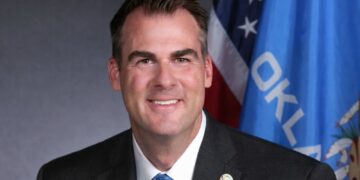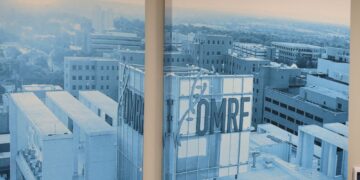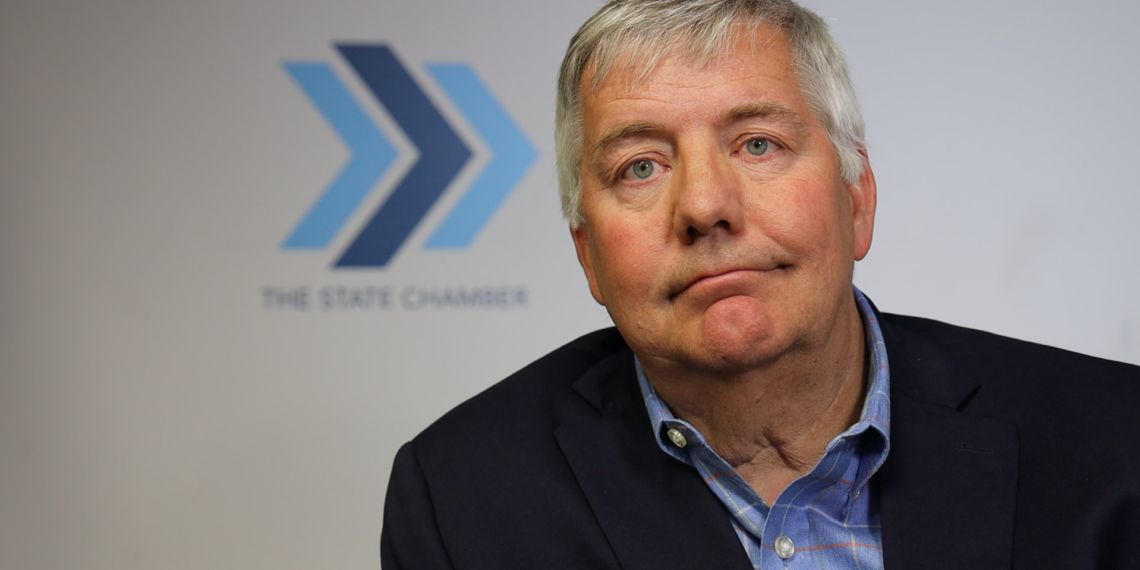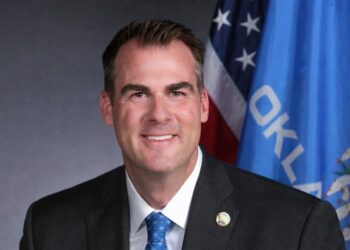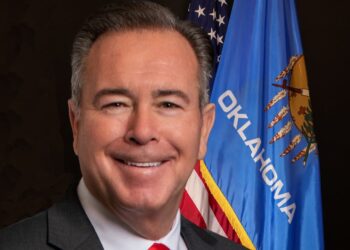OKLAHOMA CITY (OBV) – G. Carl Gibson has been an Oklahoma business leader for over four decades.

Much of Gibson’s career was spent within Oklahoma’s biotech and financial sectors, holding many leadership positions in various banks and technological companies.
He continues to contribute to the state’s business community as a key member of The State Chamber of Oklahoma’s Board of Directors, serving as the board’s treasurer.
Gibson spoke with Oklahoma Business Voice about The State Chamber’s efforts to help the state’s business community by spearheading business and economic development throughout the state. He also discussed ways in which the state can better facilitate business and economic growth.
OBV’s full interview with Gibson is featured below:
Why is The State Chamber important to you?
Gibson: I’ve been active in chambers literally my my whole life, between city chambers through the various banking side of it. I’ve served on the finance committee of the chamber for decades. But I like the message, I like what The State Chamber stands for. The State Chamber is really a business organization. My whole career has been in helping and augmenting the business process. That’s what I enjoy doing.
How important is it for the Chamber itself to be that voice for business in the state?
Gibson: It’s absolutely important. The the local chambers have a role, but The State Chamber – especially when you’re talking about legislature or legislative issues – there needs to be a unified voice, there needs to be singularity in purpose in what needs to be done. In a lot of cases, you’ve got very different parts of Oklahoma that have different agendas, and somebody needs to reconcile these into something that is passable, that they can get to the legislature. The State Chamber has been successful in that; it’s not always easy. Again, you’re talking about a very diverse state with a lot of different interests.
Are there specific areas that you think you’ll be focusing a lot of your attention on when it comes to the whole landscape of business? Finance, obviously, is your background.
Gibson: I’m a macro guy. You’ve got state gross domestic product, you’ve got population growth, you’ve got industrial. How healthy has the different industries? Venture capital was a big focus of mine for 25 years. Oklahoma doesn’t quite have enough of it. We’re just a small state, away from the coasts – that’s a problem. We’ve got workforce. We can get great technical people. C-suite executives are kind of hard to get to Oklahoma. That’s going to cause a problem for us attracting industry, especially industries that have executive officers here. There’s a lot of good stories around state. We seem to be losing a lot of those battles. We can offer a lot here in the state. The biggest disadvantage we have is we’re sitting right on top of Texas. Texas is hard to compete with.
This last year, The State Chamber did a lot of work with economic development. That has to be something that encourages you, right?
Gibson: It is, it is. We’ve got a population growth. We need to have good jobs. We’ve done a great job of getting away from oil and gas and agriculture. Diversifying our economy to a lot of different areas, I like what I see there. I really love the aerospace industry. I haven’t worked in that area, but I’m an active pilot, so I kind of watch the aerospace side of it. The venture capital firms that are working in that area have done a great job. They are actually doing a better job than probably the life sciences side. So hats off to them. Still, the life science and IT area, we got plenty of it here in the state along with the aerospace.
What is it about The State Chamber that makes it such a crucial factor in business and economic development?
Gibson: There’s lots of parties in the state that have specific agendas. I’m not being critical of them. You’ve got the bar side of it, you’ve got education, you’ve got transportation, you’ve got all these different sectors that are they’re highly organized and spent a lot of time working the Capitol. The problem with that is, they can focus on it because a lot of their revenue comes from the state. Well, that revenue from the state comes from business. And so, businesses need to have a say in how these funds are spent, how they’re raised, how you’re taxed. And so, I look at it as the business community is the funding mechanism for the state, ultimately, and business should have a say in where those funds go and how that works. And historically, tax consumers are better organized in going to the state and getting favorable treatment versus those that are paying the bills.
For a business owner or company thinking about joining with Chamber, what would you tell them?
Gibson: It’s an investment. You could make a phone call to The State Chamber, and if you have an issue, The State Chamber’s going to know who to contact, how the process works, what it will take to get an audience and potentially help out in a process. That’s something that an individual business owner can never keep track of on an ongoing basis. They’re too busy running their businesses.
How would you describe the current climate in Oklahoma for business and economic development? Does it seem to be something that’s becoming more promising and advantageous for business development and for companies to move here? Or is it something that still needs some work via legislation and other efforts?
Gibson: When we compete for national companies coming in, we tend to lose. On the other side of that, we’ve got companies here in Oklahoma that are expanding – they’re doing fantastic. But I could place the argument of why don’t we spend more time growing our own versus trying to buy these jobs from out of state, which we’re coming in second and third to other states. I don’t really have an insight into how the decisions are made, but we either win or lose.
Are there any initiatives that you would like to see by our state legislature or within The State Chamber to facilitate business and economic growth within Oklahoma?
Gibson: The legislature has to think about the business climate. It has to be – I hate to use the word inclusive – but it has to be larger than partisan policy. It has to think about lots of different areas. There’s the creative side, the technical side – there’s lots of different parties that have to work together.
I’d like to think that The State Chamber can look at it as kind of an all in kind of viewpoint on what needs to be done versus the very partisan side of it. That’s a technical question that I’m not too sure has many good answers.
What are your hopes for the future of The State Chamber as far as economic development and business development initiatives? Are there any special efforts or causes that you’d like to see The State Chamber become more involved with?
Gibson: Workforce development. We get a lot of talk about whether we have the right people here. I don’t have the good answers. I know we have lots of good tools. We’ve got great education. We got lots of higher ed, lots of vocational, CareerTech, research resources. How those get applied can be incredibly beneficial, but they have to be applied correctly. My perspective is I’ve seen really, really good outcomes with workforce development for a specific industry; and then we’ve had some failures where – I’ll throw out an an example – high quality machinists are really hard to get here in the state of Oklahoma. Why? I don’t know. That’s not my area. ‘Why can’t they be solved?’ would be my question.
What is the future of science industries in Oklahoma? Those are not industries we’ve been strong at in the past. Is that something Oklahoma can grow in?
Gibson: We have the Oklahoma Medical Research Foundation. They’re one of the top five research organizations in the country. There’s all sorts of patents that are coming out of that organization. The concept of taking those patents, wrapping a company around them, raising venture capital, commercializing those technologies and having all the jobs stay here in Oklahoma – that’s the dream.
There’s some specific venture capital that has been allocated to that effort, but not enough. It’s had mixed successes. But again, we can’t be agriculture, oil and gas and aerospace – we need have lots of different things. I know for a fact that we’ve got industries specifically that need technical expertise. These are chemists, and we apparently do not have a problem in creating those kind of professionals to be hired in those companies. We need more of the stories.




